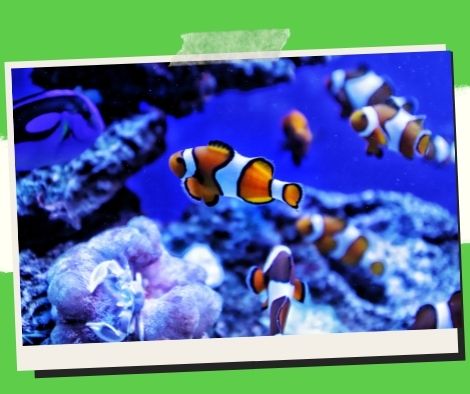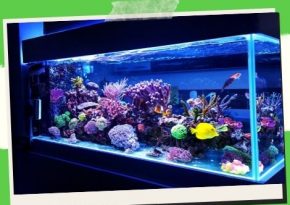
Stocking Tropical Fish in Your Saltwater Aquarium
The fish are typically the first thing people notice when they gaze upon a saltwater aquarium. Fish of all different personalities, sizes, colors, and forms. Buying fish that are sickly and dying soon after being transported to their new home is one of the most heartbreaking things that can happen to a person who enjoys tropical fish after they have spent the time, money, and effort putting up an aquarium.
If you buy your fish from a respected pet store, your chances of getting a healthy fish are higher. If the smell of decaying seafood overwhelms you as soon as you enter a store that offers pet fish for home aquariums, turn around and go. It’s common for fish markets to smell strangely musty. A store with a lot of odar may not be as concerned about animal care as it ought to be.
Examine the aquariums in the shop. The tanks ought to be spotless. Water should be crystal clear. If you encounter a tank with a sign stating that the fish in the tank are not for sale, don’t be scared. There is frequently insufficient space for a quarantine tank in fish shops.
The employees should be courteous and helpful. Employees should be cleaning tanks or feeding fish when business is slow. The handler should use two nets to corner the fish when they catch it to reduce stress. Staff employees must be amiable and knowledgeable.
The general guideline is to shop elsewhere if there are more than three dead fish in a tank. Dead fish do occur. The dead fish in the tank may not always be cleaned out of the tank when shops are busy. Therefore, one or two fish are not always bad luck, but if you find more than that, you might want to think twice about adding them to your saltwater aquarium.
Take your time and carefully inspect the fish when you are purchasing tropical fish. Take note of how they are physical. Examine their lips, scales, eyes, fins, and abdomens. As close as you can without touching the glass, place your hand there. The fish should either dart for cover or swim near your hand in search of food. Don’t buy a fish if it doesn’t appear or act healthy.
Gather some information before you go fish shopping for tropical species. Check the compatibility of the fish you buy. Make certain you are aware of the type of meals they require (predatory fish generally need frozen or live bait). Make sure you have a mechanism to keep the live food alive if you decide you want to retain a predatory fish that demands it; in many cases, this will entail keeping the fish in an entirely different tank. You might want to start preparing ahead and buy species that are compatible with coral if you eventually want to add coral to your saltwater aquarium.
Save/Share this story with QR CODE
Disclaimer
This article is for informational purposes only and does not constitute endorsement of any specific technologies or methodologies and financial advice or endorsement of any specific products or services.
 Need to get in touch?
Need to get in touch?

We appreciate your reading. 
1.) 

Your DONATION will be used to fund and maintain NEXTGENDAY.com
Subscribers in the Philippines can make donations to mobile number 0917 906 3081, thru GCash.
3.) 
4.) 
AFFILIATE PARTNERS

World Class Nutritional Supplements - Buy Highest Quality Products, Purest Most Healthy Ingredients, Direct to your Door! Up to 90% OFF.
Join LiveGood Today - A company created to satisfy the world's most demanding leaders and entrepreneurs, with the best compensation plan today.

 Business, Finance & Technology
Business, Finance & Technology




